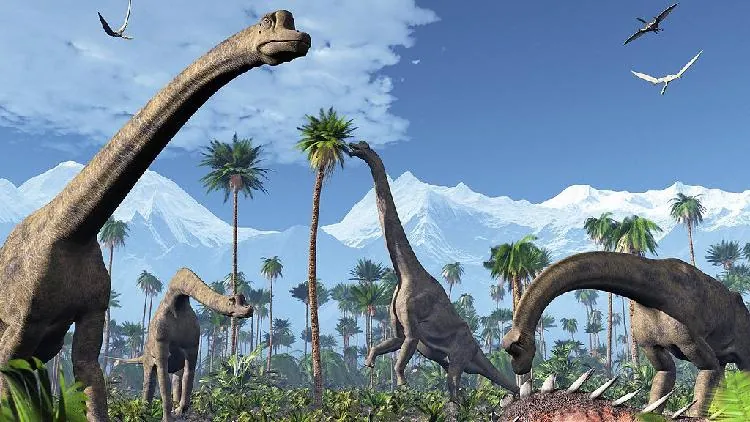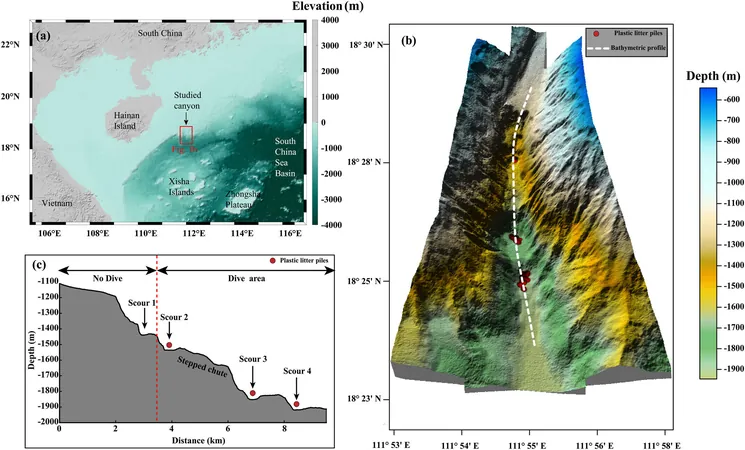
Unearthing Dino Secrets: How Fossilized Droppings and Vomit Illuminate the Rise of Dinosaurs
2024-11-28
Author: Sarah
Introduction
In a groundbreaking study published in the prestigious journal Nature, scientists have uncovered fascinating insights into the rise of dinosaurs using fossilized feces and vomit discovered in Poland. These ancient remnants, often overlooked, have become crucial in piecing together how dinosaurs came to reign over Earth's ecosystems millions of years ago.
Gradual Ascent of Dinosaurs
The research team, led by Martin Qvarnstrom from Uppsala University, emphasizes that the ascent of dinosaurs wasn’t an abrupt event but a gradual process spanning approximately 30 million years. This prompts intriguing questions: Was their success due to sheer luck, evolutionary skill, or environmental factors? Qvarnstrom asserts, “It was not a sudden thing,” hinting at a multifaceted story behind their dominance.
Reconstructing the Food Web
By meticulously analyzing hundreds of dinosaur droppings, the researchers reconstructed a food web from over 200 million years ago, revealing a diverse diet among early dinosaurs. Initially, these pioneering creatures were opportunistic feeders, consuming everything from insects and fish to plants. As climate conditions evolved, so did their diets; for instance, herbivorous dinosaurs adapted remarkably by diversifying their plant intake, thriving in wetter climates that introduced new flora.
Global Relevance of Findings
While the research sheds light on Polish fossils, it also raises the question of whether these findings are consistent with data from global fossil records. Qvarnstrom expressed his eagerness to expand the research's scope to verify its applicability worldwide.
Significance of Ancient Fecal Matter
Paleobiologist Emma Dunne from the University of Erlangen-Nuremberg, who was not involved in the study, highlights the significance of ancient fecal matter in paleontological research. Despite their unassuming appearance, these fossilized remains, often mistaken for mundane rock formations, hide a wealth of information about the diets and behaviors of prehistoric creatures. The recent analysis revealed intriguing components, including fish scales, insect fragments, and bone shards, nestled within the droppings, offering a more comprehensive view of the prehistoric ecosystem.
Conclusion
This revolutionary study not only enriches our understanding of the dinosaurs' adaptive strategies but could also pave the way for further explorations into the ecological dynamics of the Mesozoic era. What other secrets lie buried within ancient feces? Only time and further research will tell! Stay tuned as we delve deeper into the history that shaped our planet long before humans walked the Earth!


 Brasil (PT)
Brasil (PT)
 Canada (EN)
Canada (EN)
 Chile (ES)
Chile (ES)
 España (ES)
España (ES)
 France (FR)
France (FR)
 Hong Kong (EN)
Hong Kong (EN)
 Italia (IT)
Italia (IT)
 日本 (JA)
日本 (JA)
 Magyarország (HU)
Magyarország (HU)
 Norge (NO)
Norge (NO)
 Polska (PL)
Polska (PL)
 Schweiz (DE)
Schweiz (DE)
 Singapore (EN)
Singapore (EN)
 Sverige (SV)
Sverige (SV)
 Suomi (FI)
Suomi (FI)
 Türkiye (TR)
Türkiye (TR)